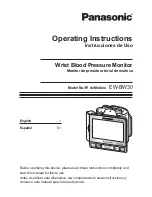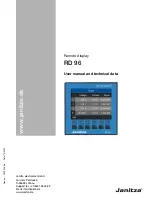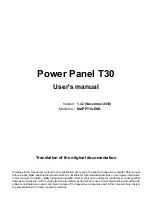
18 Monitoring SpO2
150
WARNING
Proper Sensor Fit
: If a sensor is too loose, it might compromise the optical alignment or fall off. If it
is too tight, for example because the application site is too large or becomes too large due to edema,
excessive pressure may be applied. This can result in venous congestion distal from the application site,
leading to interstitial edema, hypoxemia and tissue malnutrition. Skin irritations or lacerations may
occur as a result of the sensor being attached to one location for too long. To avoid skin irritations and
lacerations, periodically inspect the sensor application site and change the application site regularly.
Venous Pulsation
: Do not apply sensor too tightly as this results in venous pulsation which may
severely obstruct circulation and lead to inaccurate measurements.
Ambient Temperature
: At elevated ambient temperatures be careful with measurement sites that are
not well perfused, because this can cause severe burns after prolonged application. All listed sensors
operate without risk of exceeding 41°C on the skin if the initial skin temperature does not exceed
35°C.
Extremities to Avoid
: Avoid placing the sensor on extremities with an arterial catheter, an NBP cuff
or an intravascular venous infusion line.
Connecting SpO2 Cables
Connect the sensor cable to the color-coded socket on the monitor. If you are using a disposable
sensor, plug the sensor into the adapter cable and connect this to the monitor. Connect reusable
sensors directly to the monitor.
CAUTION
Extension cables
: Do not use more than one extension cable (M1941A). Do not use an extension
cable with Philips reusable sensors or adapter cables with part numbers ending in -L (indicates "long"
cable version).
Electrical Interference
: Position the sensor cable and connector away from power cables, to avoid
electrical interference.
Summary of Contents for Avalon FM20
Page 2: ......
Page 8: ...8 ...
Page 56: ...3 Basic Operation 56 ...
Page 72: ...5 Alarms 72 ...
Page 82: ...6 Patient Alarms and INOPs 82 ...
Page 86: ...7 Admitting and Discharging 86 ...
Page 90: ...8 Non Stress Test Timer 90 ...
Page 120: ...11 Monitoring Twin FHRs 120 ...
Page 126: ...12 Monitoring Triple FHRs 126 ...
Page 136: ...15 Monitoring Uterine Activity Internally 136 ...
Page 142: ...16 Monitoring FHR Using DECG 142 Testing DECG Mode Refer to the monitor s Service Guide ...
Page 154: ...18 Monitoring SpO2 154 ...
Page 164: ...20 Printing the ECG Waveform 164 ...
Page 166: ...21 Paper Save Mode for Maternal Measurements 166 ...
Page 170: ...22 Recovering Data 170 ...
Page 174: ...23 Care and Cleaning 174 ...
Page 188: ...25 Accessories and Supplies 188 ...
Page 216: ...26 Specifications and Standards Compliance 216 ...
Page 221: ...Part Number 453564290161 Printed in Germany 08 11 453564290161 ...
















































